March 14, 2024
Publications
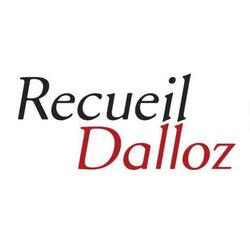
🌐follow Marie-Anne Frison-Roche on LinkedIn
🌐subscribe to the Newsletter MAFR Regulation, Compliance, Law
____
► Full Reference: M.-A. Frison-Roche, "Compliance et conformité : les distinguer pour les articuler" ("Compliance and conformity: distinguish them in order to articulate them"), D. 2024, chron., pp. 497-499
____
📝read the article (in French)
____
🚧read the bilingual Working Paper which is the basis of this article, with additional developments, technical references and hyperlinks
____
► English Summary of the article: "Compliance" and "conformité" ("conformity") are sometimes presented as synonyms, with "conformité" simply being the translation of "compliance". On the contrary, they are two opposing concepts. "Conformity" refers to the obligation to obey all applicable regulations, regardless of their content. A godsend for the regulator... Compliance Law is quite different! Political and public authorities set systemic 'Monumental Goals' to ensure that systems do not collapse tomorrow, or even improve, and then entrust large companies with the task of activating the means to achieve these goals. Conformity then resumes its place in Compliance Law: being one of its tools.
____
📚read the other articles published in this chronique of Compliance Law published in the Recueil Dalloz
________

Feb. 19, 2024
Publications
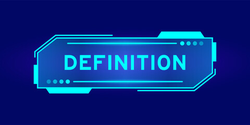
🌐 follow Marie-Anne Frison-Roche on LinkedIn
🌐subscribe to the Newsletter MAFR Regulation, Compliance, Law
____
 ► Full Reference: M.-A. Frison-Roche, Compliance and conformity: distinguishing them to articulate them, Working Paper, February 2024.
► Full Reference: M.-A. Frison-Roche, Compliance and conformity: distinguishing them to articulate them, Working Paper, February 2024.
____
📝 this working paper was drawn up to serve as a basis for the article published in French in the Chronique MAFR - Compliance Law, published in the Recueil Dalloz.
____
► Summary of this Working Paper: The words "conformité" and "compliance" are sometimes used interchangeably, presenting "conformité" as the translation into good legal French vocabulary of "compliance", which would come from the American system. This is not true, however, because each of these terms refers to two distinct and even opposing concepts.
"conformity"' would require companies to show that they are actively obeying all the 'regulations' applicable to them, regardless of their content. "Compliance Law" is a new substantial branch of Law that derives its normativity from the "Monumental Goals" targeted by the political and public authorities: these monumental goals are intended to ensure that systems do not collapse in the future (Negative Monumental Goals), or even improve (Positive Monumental Goals). The systems concerned are banking, finance, energy, health, transport, digital and climate systems. The scope of Compliance Law is therefore both much more limited and more ambitious.
Distinguishing between the two allows us to put conformity back where it belongs, as a tool of Compliance Law. As such, conformity justifies the collation and correlation of information, with the algorithmic system playing a major role in this. On the other hand, the human concern that underpins Compliance Law justifies making training and the actions of in-house lawyers, attorneys and judges, central to it. The evidentiary system of Compliance that is currently being developed is based on evidentiary techniques rooted on the one hand in the tool of conformity and on the other in the culture of Compliance, which can be articulated as soon as they are no longer confused.
____
🔓read the working paper below⤵️
Feb. 3, 2024
Interviews
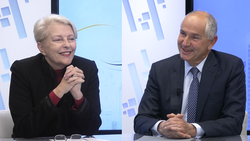
► Référence complète : Ch. Lapp, "L’usage par les entreprises des outils de la compliance (d’une façon non-mécanique)", entretien mené par M.-A. Frison-Roche à l'occasion d'une série d'entretiens sur le Droit de la Compliance, in Fenêtres ouvertes sur la gestion, émission de J.-Ph. Denis, Xerfi Canal, enregistré le 12 décembre 2023, diffusé le 3 février 2024
____
🌐consulter sur LinkedIn la présentation de l'interview de Christophe Lapp
____
🌐consulter sur LinkedIn le compte-rendu de l'interview de Christophe Lapp
____
🎥visionner l'interview complète sur Xerfi Canal
____
► Point de départ : En 2023 Christophe Lapp écrit une contribution sur 📝La compliance dans l'entreprise : les statuts du process, dans 📕La juridictionnalisation de la Compliance.
🧱lire la présentation de cette contribution ➡️cliquerICI
____
► Résumé de l'entretien :
Marie-Anne Frison-Roche. Question : Dans votre article vous affirmez qu’« il faut dépasser la conformité pour aller vers la Compliance », pouvez-vous nous en dire plus ?
Christophe Lapp. Réponse : Il répond que
____
MaFR. Q. : On dit souvent que la Compliance est perçue comme une perte de compétitivité. Quel est votre point de vue de praticien international ?
Ch.L. R. : Il répond que
____
MaFR. Q : Certaines entreprises s’interrogent sur l’over compliance ; que leur répondre ?
Ch.L. R.: Il répond que
________
Sept. 28, 2023
Thesaurus : Doctrine
► Référence complète : V. Magnier, "Devoir de vigilance et risques climatiques", in F. Barrière et M. Zolomian (dir.), Le droit des sociétés saisi par le climat, JCP E, n° 39, 28 septembre 2023, pp.18-21.
____
► Résumé de l'article (fait par l'auteure) : "L’introduction des outils de la compliance en droit des sociétés crée une approche juridique binaire : l’une préventive, l’autre de contrôle et de responsabilité. Alors que la loi sur le devoir de vigilance adopte cette double approche, l’analyse révèle qu’en dépit de l’encadrement d’un dispositif préventif ambitieux, la loi sur le devoir de vigilance peine sur le second volet, les contrôle et responsabilité restant lacunaires.".
____
🦉Cet article est accessible en texte intégral pour les personnes inscrites aux enseignements de la Professeure Marie-Anne Frison-Roche
_________
April 3, 2023
Interviews

♾️follow Marie-Anne Frison-Roche on LinkedIn
♾️subscribe to the Newsletter MAFR Regulation, Compliance, Law
____
► Full Reference: M.-A. Frison-Roche & M. Boissavy, "Colloque : « Avocat et droits de la défense dans les enquêtes internes et la justice négociée »" ("Symposium: "Lawyers and rights of the defence in internal investigations""), interview with Olivia Dufour, Actu-Juridique, 3rd April 2023.
____
💬read the interview (in French)
____
► Presentation of the interview by the journal (in French): "Le Conseil national des barreaux (CNB) organise les 20 et 21 avril prochains un colloque intitulé « Avocat et droits de la défense dans les enquêtes internes et la justice négociée ». Matthieu Boissavy, avocat aux barreaux de Paris et de New York, médiateur et vice-président de la commission Libertés et droits de l’Homme du Conseil national des barreaux et Marie-Anne Frison-Roche, professeure de droit, directrice du Journal of Regulation and Compliance nous expliquent les enjeux de ces nouvelles pratiques judiciaires qui bousculent le rôle traditionnel des acteurs de la justice, qu’il s’agisse des avocats ou des magistrats."
____
► Questions asked (in French):
- Le CNB organise les 20 et 21 avril prochains un colloque sur le thème : Avocats et droits de la défense dans les enquêtes internes et la justice négociée. Pourquoi ce choix ?
- La compliance n’est-elle pas en train de bouleverser le métier d’avocat ?
- Comment cela se traduit-il en pratique ?
- Quelles sont les implications déontologiques, ne faut-il pas inventer de nouvelles règles ?
- Qu’est-ce que la CJIP a changé dans le métier d’avocat ?
- Quels sont les nouveaux risques pour l’avocat ?
- Cela modifie-t-il les relations entre avocats, parquet et juges du siège ?
________
July 1, 2022
Conferences
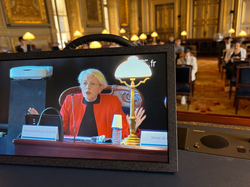
♾️follow Marie-Anne Frison-Roche on LinkedIn
♾️subscribe to the Newsletter MAFR Regulation, Compliance, Law
____
► Full Reference: M.-A. Frison-Roche, "Compliance, Artificial Intelligence and Business Management: the right measure" ("Compliance, Intelligence artificielle et gestion des entreprises : la juste mesure"), participation to the Conference coordinated by Mustapha Mekki, L'intelligence artificielle et la gestion des entreprises. July 1st, 2022.
____
🎥 see the conference (in French)
____
consult the slides having been used as brief notes for deliver the lecture (inf French)
____
🚧read the bilingual Working Paper having been used as basis for this conference
____
📝This work will be the basis for an article.
____
► Summary of the Lecture: Of the next European Regulation on artificial intelligence, the European Commission has a quite neutral conception of AI for obtaining a consensus between the Member States, while the Regulators and certain States have a more substantial conception of technology, wanting its power to be used to protect people, firstly from these new tools themselves, secondly from what is an amplification of the evils of the classic world, such as hate or misinformation. This is the reflection of two conceptions of Compliance.
Firstly, Compliance can be defined as neutral processes that increase the effectiveness of what would be the obligation for companies or their desire for efficient risk management (in particular the consideration of "legal risks") to prove being "conform" to all regulations that are applicable to itself and all persons to whom the firm is accountable. This is often referred to as the "compliance obligation" or "obligation of conformity".
This conception implies considerable practical consequences for the company which, in order to succeed in this "total exploit", would then have to resort to artificial intelligence tools constituting a "total and infallible solution", which mechanically generate for it the obligation to "know " all the "regulatory mass", to detect all "non-compliances", to conceive its relationship to the Law in terms of "risk of non-compliance", fully supported by Compliance by Design which could, without human intervention , eliminate legal risk and ensure "compliance total efficiency" in Ex Ante.
The "legal price" of this technological dream is extremely high because all the "regulatory" requirements will then be transformed into obligations of result, any failure generating liability. The Compliance probationary system will become overwhelming for the company, both in terms of burden of proof, means of proof, and transfers, without exemption from proof. Objective responsibilities for others will multiply. The "law of conformity" will multiply Ex Ante systemic penalties, the border with criminal law being less and less preserved.
It is essential to avoid this, both for businesses and for the Rule of Law. For this, we must use Artificial Intelligence to its proper extent: it may constitute a "massive aid", without ever claiming to be a total and infallible solution, because it is the human who must be at the center of the compliance system functioning thank to the firms and not the machinery.
For this, it is necessary to adopt a substantial conception of Compliance Law (and not a sort of Conformity Law or Obedience Law). It does not at all cover all the applicable regulations and it is not at all "neutral", being in no way a series of processes. This new branch of Law is substantially built on Monumental Goals. These are either of a negative nature (preventing a systemic crisis from happening, in many but specific perspectives: banking, financial, health, climate, etc.), or of a positive nature (building a better balance, in particular between human beings, in the company and beyond).
In this conception which appears more and more strongly, artificial intelligence finds its place, more modest. As Compliance Law is based on information, Artificial Intelligence is essential to capture it and make first connections, first stages for successive analyses, done by human beings, making what is essential: the commitment of the company, both by the leaders and by all those who are "embarked" by a "culture of Compliance" which is at both built and common.
This restores the required seal between Criminal Law and what can be asked of the mechanical use of Artificial Intelligence; this puts the obligation of means back as a principle. This restores the principal place to the lawyer and the compliance officer, so that the culture of compliance is articulated with the specificities of a sector and the identity of the company itself. Indeed, the culture of compliance being inseparable from a culture of values, Compliance by design requires a dual technique, both mathematical and legal culture. It is why European Compliance Law, because it is rooted in the European humanist tradition, is a model.
________
For further:
📘Frison-Roche, M.-A. (ed.), Compliance Monumental Goals, 2022
📘Frison-Roche, M.-A. (ed.), Compliance Jurisdictionalisation, 2022
📘Frison-Roche, M.-A. (ed.), Compliance Tools, 2021
📓Frison-Roche, M.-A., L'apport du Droit de la Compliance à la Gouvernance d'Internet, 2019
📕Frison-Roche, M.-A. (ed.), Pour une Europe de la Compliance, 2019
📕Frison-Roche, M.-A. (ed.), Régulation, Supervision, Compliance, 2017
📕 Frison-Roche, M.-A. (ed.), Internet, espace d'interrégulation, 2016
📝 Frison-Roche, M.-A., Compliance Monumental Goals, beating heart of Compliance law, 2022,
📝 Frison-Roche, M.-A., Role and Place of Companies in the Creation and Effectiveness of Compliance Law in Crisis, 2022
📝 Frison-Roche, M.-A., Assessment of Whistleblowing, and the duty of Vigilance, 2022
📝Frison-Roche, M.-A., Drawing up Risk Maps as an obligation and the paradox of he "compliance risks", 2021
__________
April 21, 2021
Publications
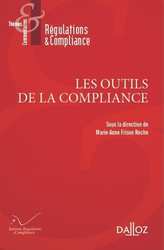
► Full Reference: M.-A. Frison-Roche, "Les droits subjectifs, outils premiers et naturels du Droit de la Compliance" ("Rights, primary and natural Compliance Tools"), in M.-A. Frison-Roche (ed.), Les outils de la Compliance, coll. "Régulations & Compliance", Journal of Regulation & Compliance (JoRC) and Dalloz, 2021, p. 301-323.
____
📝read the article (in French)
____
🚧read the bilingual Working Paper which is the basis of this article, with additional developments, technical references and hyperlinks
____
📕read a general presentation of the book, Les outils de la Compliance, in which this article is published
____
► Summary of this article (done by the Journal of Regulation and Compliance): In the traditional conception of the architecture of the sectors regulated by Law, and in Compliance Law which extends the regulatory techniques, rights have little place. But this configuration no longer takes place; on the contrary, rights are at the center of Regulatory and Compliance systems, and will be more and more so. They are and will be the primary tools of Compliance Law because they constitute a very effective "tool" to ensure the entire functioning of a system whose goals are so difficult to achieve. Because every effort must be done to achieve these goals, the public authorities not only rely on the power of crucial operators, but also distribute prerogatives to people and organizations who, thus encouraged, activate the Compliance system and participate in the achievement of the "monumental goal". Rights can prove to be the most effective tools for actually achieving the goals set, so much so that they can be seen as "primary tools".
But it is pertinent to have more pretension and to conceive rights as the most "natural" tools of Compliance Law. Indeed because all the Monumental Goals by which Compliance Law is defined can be expressed by the protection of persons, that is to say to the effectiveness of their prerogatives, by a mirror effect between rights. given as tools by Law by to persons and rights which constitute the very goal of all Compliance Law, in particular the protection of all human beings, even if they are in a situation of great weakness, rights becoming a "natural tool" of Compliance Law.
We are only at the beginning of their deployment and it is undoubtedly on them that Digital space in which we now live would be regulated, so that we will not suffocated there and that it will constitute for people a civilized space.
________